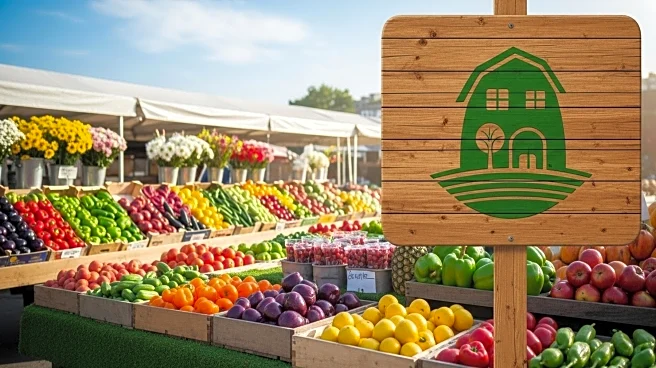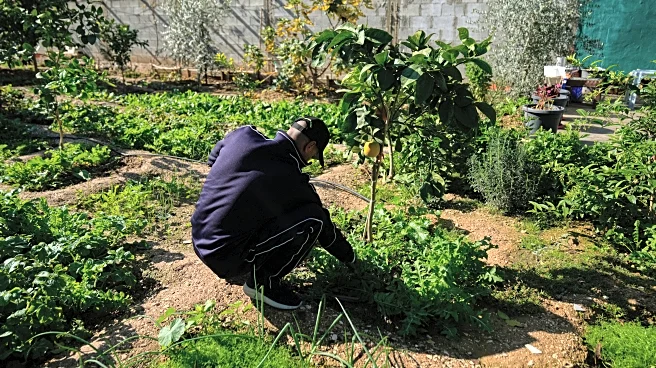What is the story about?
What's Happening?
The Local Agriculture Market Program (LAMP), administered by the U.S. Department of Agriculture, is designed to strengthen local and regional food systems. Created under the 2018 farm bill, LAMP combines several USDA initiatives, including the Farmers Market and Local Food Promotion Program (FMLFPP) and the Value-Added Producer Grant (VAPG) Program. These programs support farmers and food businesses by helping them expand operations and reach new markets. FMLFPP focuses on direct-to-consumer outlets like farmers markets, while VAPG provides grants to producers for value-added products and services. LAMP aims to increase income for small and mid-sized farms, improve access to healthy food, and support job growth in rural areas.
Why It's Important?
LAMP plays a vital role in enhancing the sustainability and profitability of local food systems, which are crucial for rural economies. By supporting farmers markets and food hubs, the program helps producers connect with consumers, thereby increasing their income and market reach. This initiative also promotes healthier food options and contributes to economic development in rural communities. Continued investment in LAMP is essential for fostering resilient food systems that benefit both farmers and consumers, ensuring long-term economic and social gains.
What's Next?
As demand for local food options grows, LAMP will continue to be a key driver in expanding market opportunities for farmers and food businesses. Stakeholders can expect ongoing congressional support for the program, which will facilitate further development of local food systems. Farmers and food businesses may explore new funding opportunities through LAMP to enhance their operations and market presence. The program's success could lead to additional initiatives aimed at strengthening rural economies and food systems.















